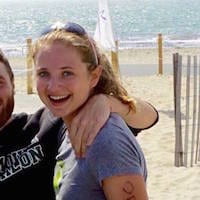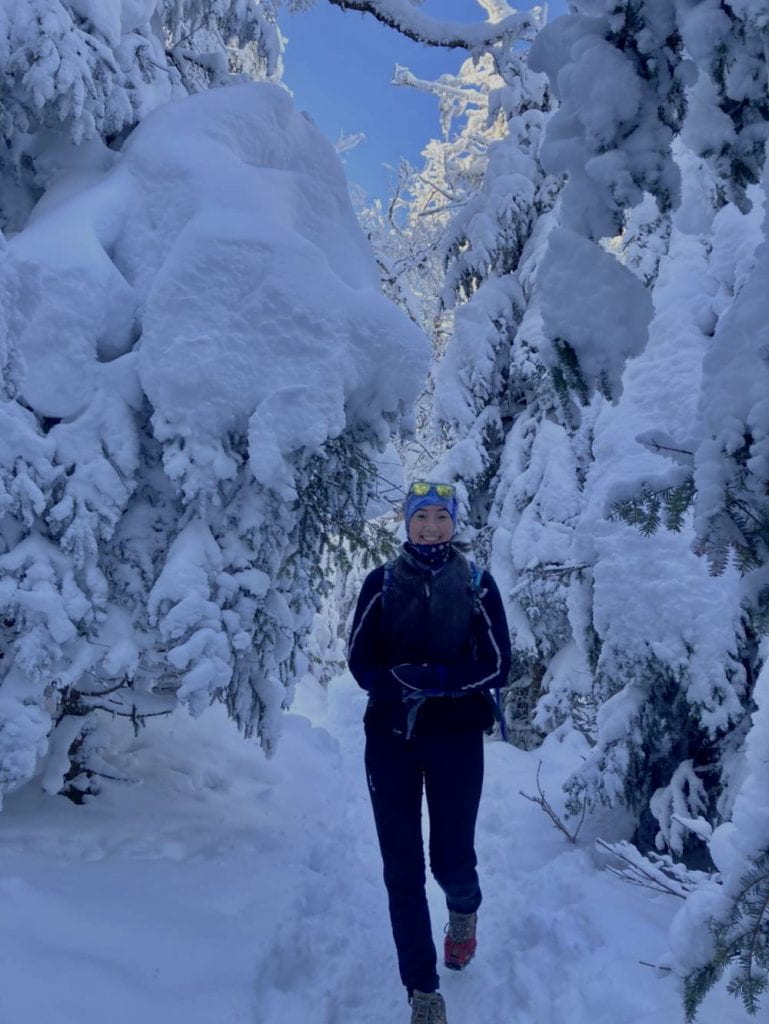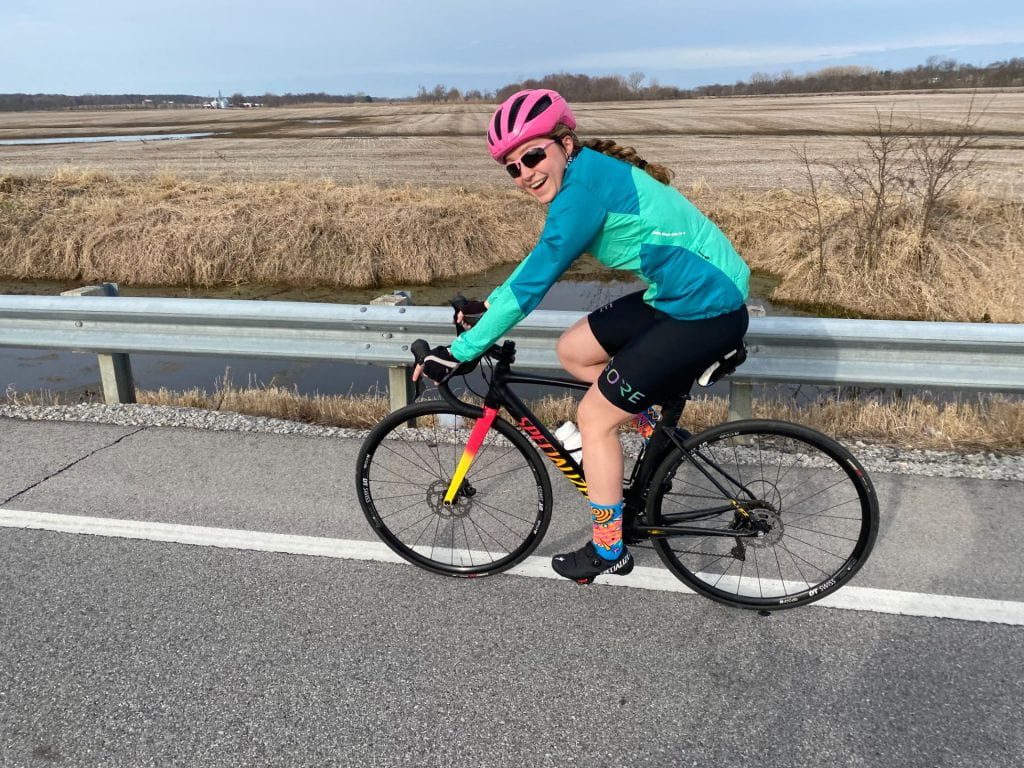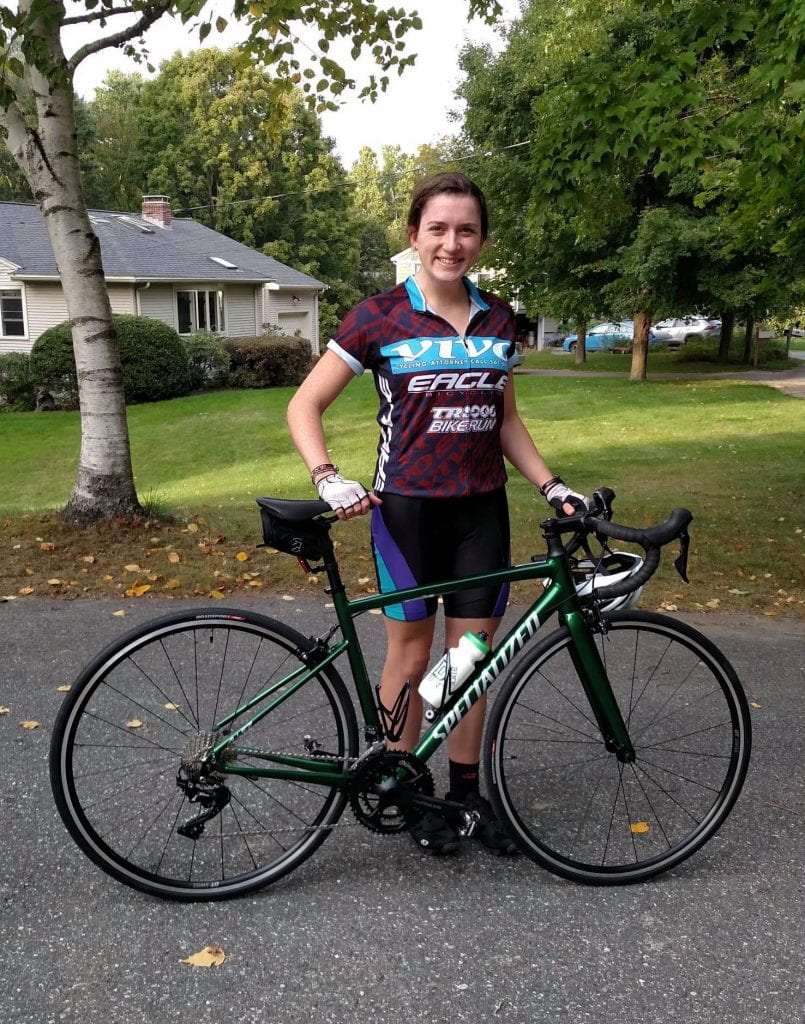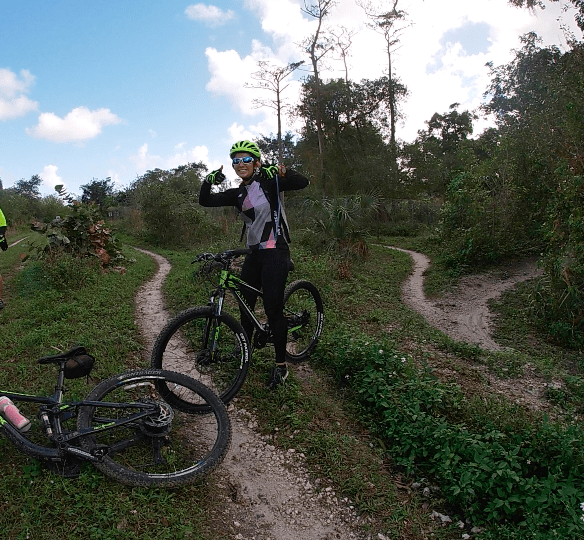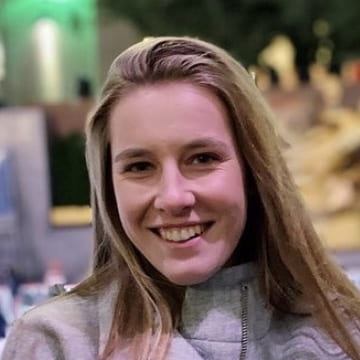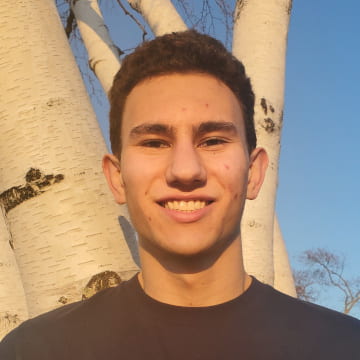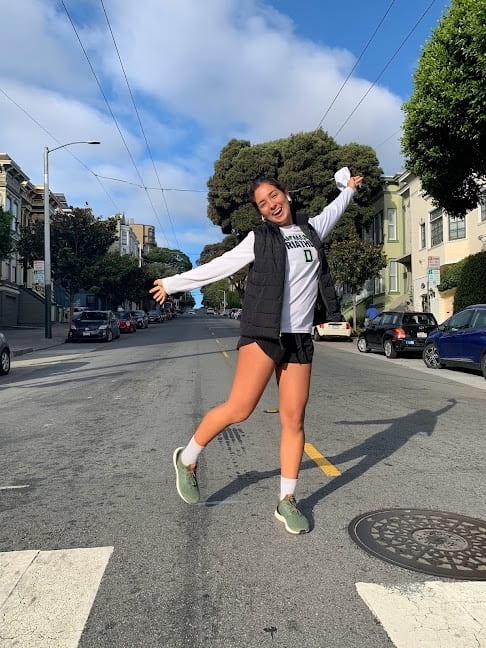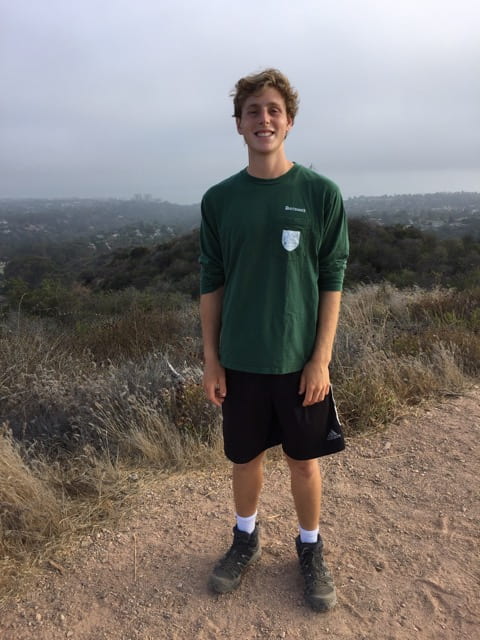Long autumn bike rides might be my favorite thing about going to school in New Hampshire. Vibrant colors, vitality in the air. On a few solo rides this fall, the glory of it all inspired me to sing songs from “The Sound of Music” under my breath. Summer morning open water swims in the Upper Valley are similarly spectacular. Fog rising, glassy solitude. I swam beside a loon once in August, popping my head above the water just in time to watch its webbed feet plunge beneath the surface.
In December, I spent hours chugging away on my bike trainer, admiring my cats’ litter boxes and the underside of the basement stairs. I swam beside retired folks at the Y. Throughout the winter, I have shuffled through icy slush on cold nights, wearing enough reflective gear to look like a small vehicle.
Why am I spending 12+ hours/week training for a summer sport?
The simple answer: I am in tri team’s Long Course goal group this winter and spring, training for a 70.3 triathlon (Half Ironman). Winter is for base training, which involves high volume, low intensity training that is often indoors.
The more interesting question: why did we all choose to register for these races? What keeps us swimming in pools, biking on trainers, and running in ski gear? What drives our craziness?
At its best, triathlon promotes holistic health. This is obvious to me when I see the sun set over Post Pond or brave Jericho Hill alongside my teammates. But the winter months are reminding me that understanding my ‘reasons why’ requires thought and self-reflection. There is nothing inherently good about triathlon. At its worst, an individual sport like this one can promote unhealthy self-absorption, toxic comparison, even narcissism. If we don’t understand our ‘why,’ we’re little more than TrainingPeaks-driven drones. In the process of writing this post, I have unpacked my intentions and organized them into three buckets: training the body, sharpening the mind, and bolstering community.
Training the Body
Triathlon trains your body to love movement. It accustoms you to physical exertion until it is expected and comfortable. In a society that encourages scrutiny and sculpting of the body, triathlon training teaches us that our bodies are agents and not objects (check out Emma R’s post, “The Mirror Doesn’t Matter”). It can be a reminder to treat our bodies with kindness, not because we should lead healthy lifestyles, but because it genuinely feels good to prioritize self-care.
Training the body is satisfying. It’s easy to track your progress, both by numerical measurements and by how it feels to swim, bike, and run. In my own experience, making progress inspires gratitude. It makes it easier for me to be grateful for my health and my strength, proud of the way my body responds to challenges instead of critical of the way it looks standing in front of a mirror.
Sharpening the Mind
Mental toughness is what gets you out the door for a run on a dreary day and what pushes you a little harder through a long interval on the trainer. The mental toughness that we develop now will push us to the finish line on race day. Each day, as we train our bodies, we train our minds.
That said, this winter I have realized that sharpening the mind during training requires discipline. It is easy to spend an entire two-hour ride distracting myself by watching TV, listening to pop music, letting my mind wander. Sometimes, that escape is just what I need. But so much escape, after about a month of long course training, began to feel like a waste of time.
I have started to approach my training sessions as opportunities to learn. I experiment with mindfulness meditation on my bike, tuning into the sensations in my body and my breath, noticing thoughts pass in and out of my brain. This moment-by-moment awareness makes me feel more present as I go through my days, and it will help me push through on race day.
I have also been more intentional about what I listen to and watch on the trainer, choosing interesting podcasts, sermons, and documentaries over mindless television. While this learning doesn’t necessarily cultivate the kind of mental toughness that will get me across the finish line, it has helped me make the most of my time and feel less like a caged hamster on a wheel.
Bolstering Community
For me and many others on the Dartmouth tri team, the triathlon community is central to our love of the sport. Training alone can be isolating, but training with others fosters deep friendships. This winter alone, I have had interesting conversations with teammates about the refugee crisis, engineering in third world countries, problems with the mental health care system, the ideal work-life balance, how to protect others without being overbearing, how to make the world’s best granola. What else is there to do on these long runs and rides? In my view, training side-by-side is the world’s most platonic form of physical intimacy. Something about parallel strides and elevated heart rates seems to spark connection, and honesty is often met with a uniquely visceral empathy.
The spirit of this team is one of encouragement and inclusivity. I think I registered for this Half IronMan because I wanted more of that spirit in my days. My motivation has plummeted on weeks when I can’t make many practices. Training can be tough, but together, we try not to take ourselves too seriously. There is laughter at practice. We care about what’s going on in each others’ lives.
—
You don’t need to train for a Long Course triathlon to gain these physical, mental, and social benefits. You don’t need to do triathlons at all. In some circumstances, high-volume training has the potential to detract from overall quality of life. But training with healthy intentions in the context of a positive community has brought me strength and satisfaction, discipline and joy. I think many of my teammates would say the same.
Sbr,
Sonia
About the Author
Sonia is a ’19 studying Psychology and Spanish. She loves talking with kids about feelings, singing in the car, and drinking spicy hot chocolate after winter runs.
